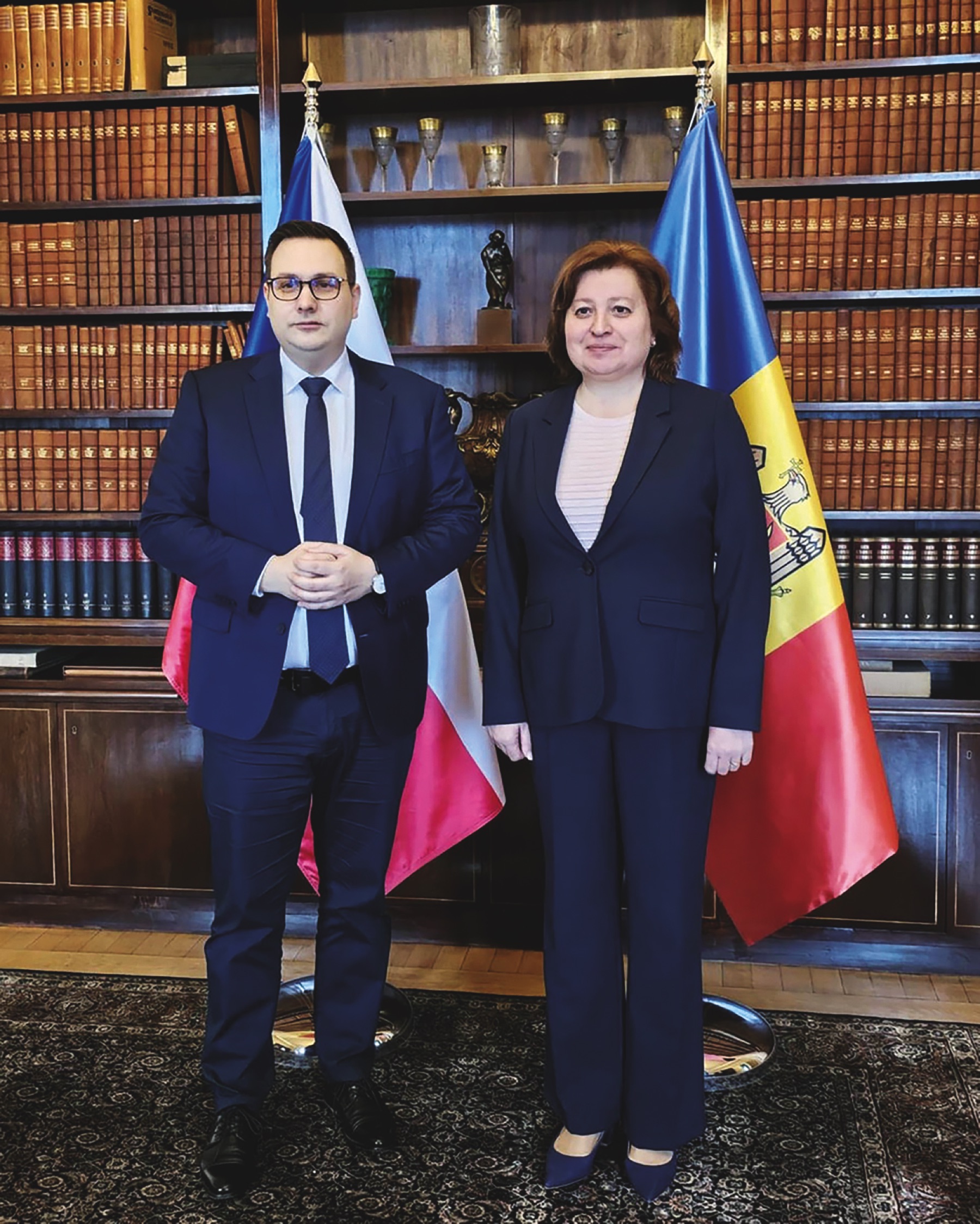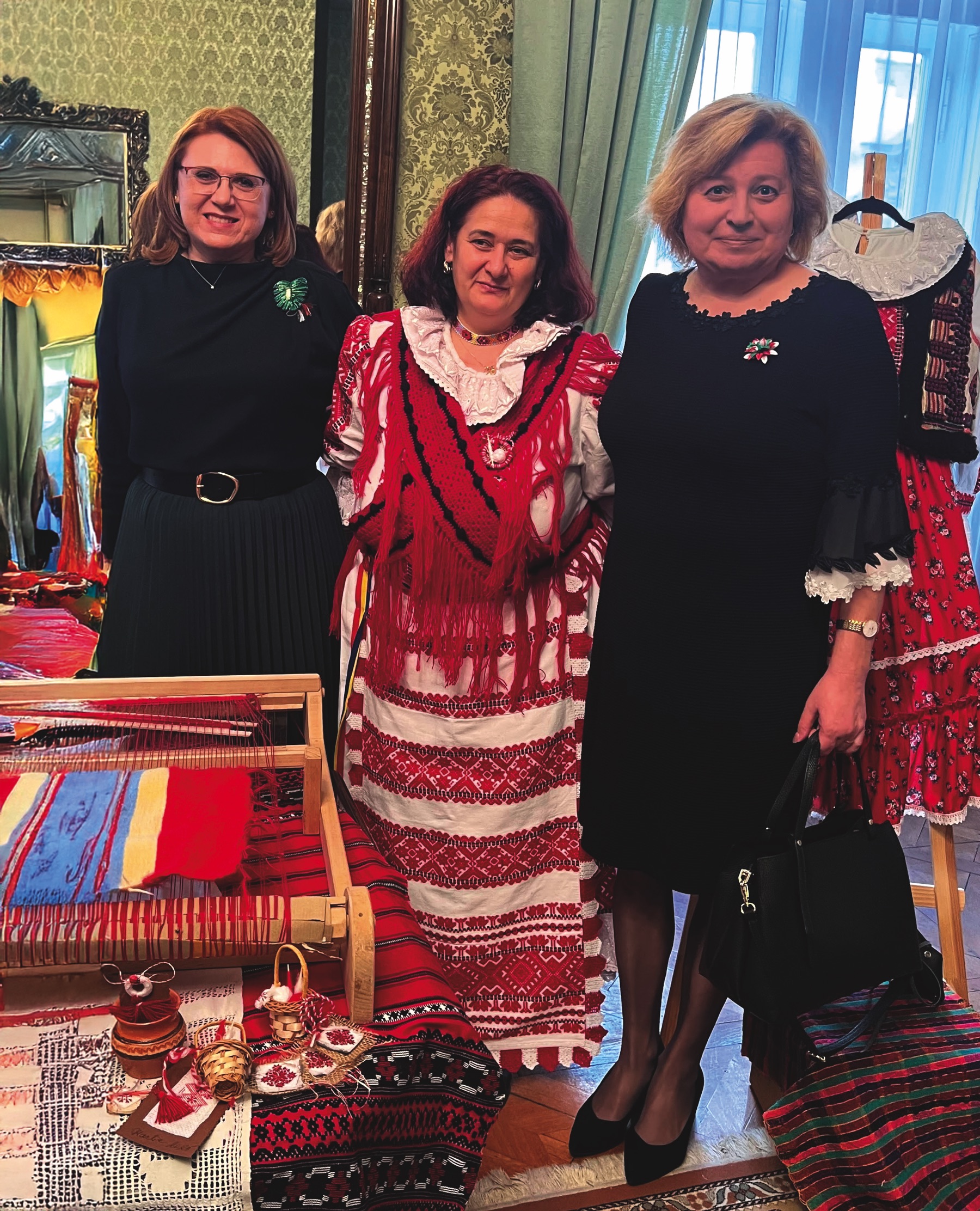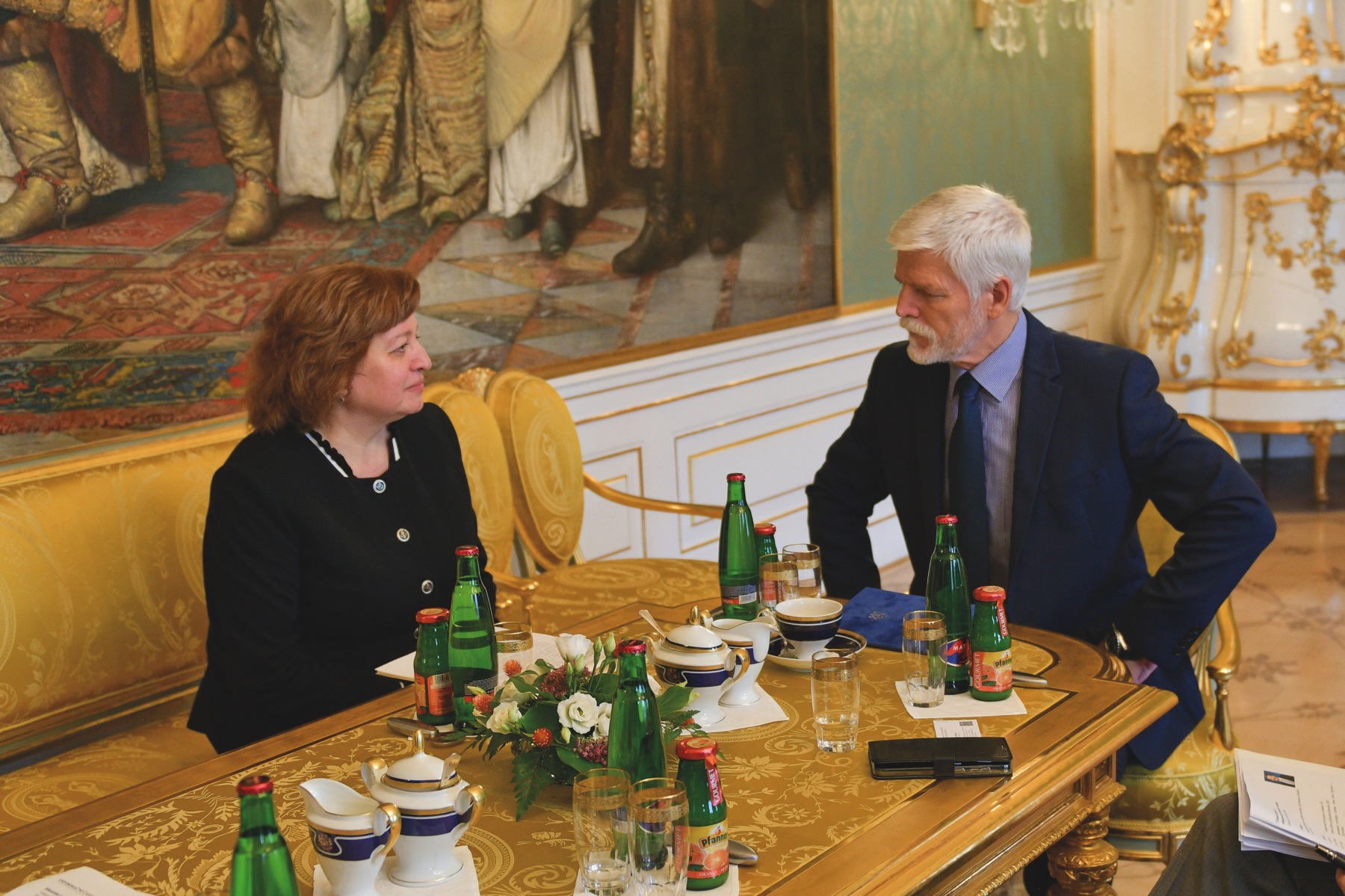We value close political dialogue

Mr. Jan Lipavský, Minister of Foreign Affairs of the Czech Republic, and H.E. Ms. Gabriela Moraru, Ambassador of Moldova to the Czech Republic
Text: Martina Hošková and M. Zisso; Photo: Archive
Can you share a bit about your background?
I was born in the Republic of Moldova. I graduated from the State University of Moldova, completed my studies at the National University of Political Studies and Public Administration in Romania, and finally received a master’s degree in international relations at the United World College of the Adriatic in Italy. I am a career diplomat.
Would you describe your country to our readers?
Located in Eastern Europe, the Republic of Moldova is a country with a rich tourist potential. Bordered by Romania to the West and Ukraine to the North, South, and East, this corner of the earth more than deserves the title of “a corner of heaven”.
Thanks to the four seasons, the surroundings look different every time – spring in the buds and aromas of flowers, summer in the gentle beat of the sun’s rays and the charm of fruits, autumn in the multicoloured leaves and of course in the taste of grapes, and winter in the purity of snow. Whatever time of year, the look is enchanting.
The pride of Moldova is in its natural landscapes, with places virgin and enigmatic; there are historical sites and fortifications that carry the breath of history; there are wines and cellars of rare quality; and there are the churches and monasteries in whose construction a soul was poured, thus becoming places of pilgrimage and healing of the soul. The pride of Moldova is also in its native people – who create the spirit of hospitality in our small country.
It looks like Moldova really has a lot to offer as a holiday destination.
The Republic of Moldova has a rich cultural heritage, which certainly may be of great interest to tourists. 140 cultural heritage sites may be included in the tourist circuit. The earliest visible remains of the built heritage are Geto-Dacian sites and Roman fortifications. The remains of medieval fortresses, as well as archaeological complexes such as Orheiul Vechi, cave monasteries, nobles’ mansions, and peasant houses offer a diversity of visitor attractions. Chisinau, the capital city, features a good number of cultural heritage monuments, fine examples of domestic architecture from the 19th and 20th centuries, which might be considered to be tourist attractions as well.
The Republic of Moldova has 87 museums, with rich collections of art. Additionally, museums are mostly housed in buildings of special architectural importance.
Part of the national tourist product is the variety of cultures represented across different regions of the country. The Republic of Moldova is a mosaic of many nationalities and cultures, featuring a variety of traditions, languages, folklore, cuisine, and more. There are over 880 folk music groups in the Republic of Moldova, most of which reflect the distinct traditions of their districts and ethnic origins. It is also worth mentioning the national craftsmanship, both for its cultural value and also because it provides souvenirs for tourists.
What drove you to become an ambassador?
I have always wanted and wished to contribute to the deepening and diversification of relations between my country and other countries, and to make Moldova known to the world. As you know, the mission of a diplomat involves creating new bridges, opening doors and souls, creating a positive image of the country, and identifying new possibilities for cooperation. Diplomacy is the main instrument of foreign policy, which represents the broader goals and strategies that guide a state’s interactions with the rest of the world.
Could we say that being an ambassador fits well into your lifestyle?
I have about 30 years of experience in diplomacy. Diplomacy has become my lifestyle. I can’t imagine anything else. I am passionate about the country, I travel, I learn about culture and history, and I enjoy communication.
Yes, it’s not easy being a woman diplomat, but, as my husband says, “a woman diplomat first of all looks good, and secondly, can bring added value to the position.”
Which countries have you served in so far?
I started in Hungary, served in the Slovak Republic, Bosnia and Herzegovina, the Republic of Croatia, the Republic of Slovenia, the Holy See, and then continued in Poland and Estonia. After that, I was an ambassador to Israel, and now to the Czech Republic.
You have been in Czechia for about a year. Would you share some of your impressions?
It is a great responsibility and honour for me to represent and serve my country in the Czech Republic. I have had a very good impression of the Czech Republic. Of course, I endlessly admire the capital, Prague. I was impressed by the beautiful landscapes, historic cities, and old castles with stunning architecture… and of course, a lot of intelligent people. When people are honest, professional, and well intentioned, it’s a pleasure to interact with them.

H.E. Ms. Gabriela Moraru, Ambassador of Moldova to the Czech Republic (on the right) and H.E. Ms. Maria Antoaneta Barta, Ambassador of Romania to the Czech Republic (on the left)
Moldova would like to join the European Union. What benefits do you expect to gain by this, and do you feel supported by Czechia in this respect?
Czechia knows better than anyone how much EU membership can change lives. The Czech Republic has long been a source of inspiration for Moldova; through its democratic transformation, economic modernisation, and success toward European integration. And today, your country continues to be an example to follow. I met with Czech officials, from various ministries, who manage our country’s files, and have found that the Czech authorities show extraordinary openness towards my country for sharing experience in European integration, carrying out reforms in various fields, and implementing development assistance projects in Moldova. Czech dignitaries have reconfirmed, during various meetings, their support for my country’s internal reforms and European agenda.
We have felt European solidarity when we needed it most. We have kept our direction and anchored our future in the values of peace and well-being. A European future. This rapprochement also brings real economic results. Today, we have access to the largest market in the world: the European Union market. We already export most of our products to this vast, stable market that you can trust.
Clear rules, competitive prices, serious partners – all of these give our producers the chance to sell more, earn better, and create jobs at home.

Mr. Petr Pavel, President of the Czech Republic and H.E. Ms. Gabriela Moraru, Ambassador of Moldova to the Czech Republic
What is the current status of Czechia–Moldova relations?
The Republic of Moldova and the Czech Republic enjoy a friendly and comprehensive relationship in various areas. We value our close political dialogue on all levels. The political dialogue is characterised by an upward dynamic; we provide an important impetus to the strengthening of bilateral relations and economic cooperation. The consolidation of Moldovan-Czech relations, as well as the openness of both states to expand bilateral cooperation, characterise, in essence, the current state of Moldovan-Czech relations.
This interview is done on the occasion of Moldova’s national day. What do you wish for your country, and for the Czech Republic?
The Republic of Moldova and the Czech Republic are friendly countries. We are united by common values and the desire to offer our citizens a better life, more security, and more opportunities. In recent years, our relationship has developed rapidly, and for this, we are grateful. Today, together, we continue to build a solid partnership, which brings real benefits to our people. I wish it to continue only in this way, with much happiness and prosperity for the Czech and Moldovan people.

